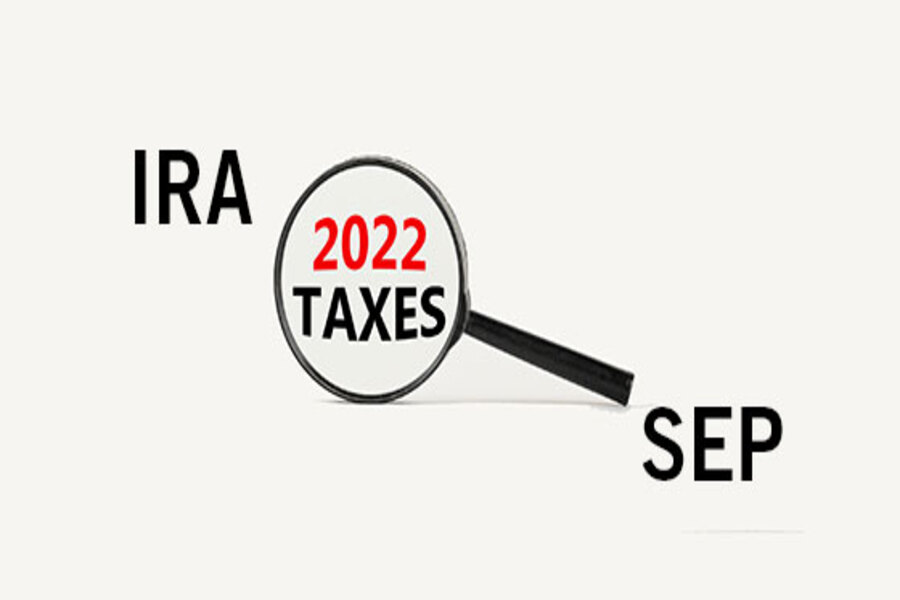Summer is around the corner so you may be thinking about hiring young people at your small business. At the same time, you may have children looking to earn extra spending money. You can save family income and payroll taxes by putting your child on the payroll. It’s a win-win! Here are four tax advantages. 1. Shifting business earnings You can turn some of your high-taxed income into tax-free or low-taxed income by shifting some business earnings to a child as wages for services performed. In order for your business to deduct the wages as a business expense, the work done by the child must be legitimate and the child’s salary must be reasonable. For example, suppose you’re a sole proprietor in the 37% tax bracket. You hire your...

Under tax law, businesses can generally deduct advertising and marketing expenses that help keep existing customers and bring in new ones. This valuable tax deduction can help businesses cut their taxes. However, in order to be deductible, advertising and marketing expenses must be “ordinary and necessary.” As one taxpayer recently learned in U.S. Tax Court, not all expenses are eligible. An ordinary expense is one that’s common and accepted in the industry. And a necessary expense is one that’s helpful and appropriate for the business. According to the IRS, here are some advertising expenses that are usually deductible: Reasonable advertising expenses that are directly related to the business activities. An expense for the cost of institutional or goodwill advertising to keep the business name before the public...
As appearing in IRS Newswire IR-2023-64 The Internal Revenue Service just issued a proposed regulation related to certain requirements that must be met for critical minerals and battery components for the new clean vehicle credit. The Inflation Reduction Act (IRA) allows a maximum credit of $7,500 per vehicle, consisting of $3,750 in the case of a vehicle that meets certain requirements relating to critical minerals and $3,750 in the case of a vehicle that meets certain requirements relating to battery components. The critical mineral and battery component requirements will apply to vehicles placed in service on or after April 18, 2023, the day after the Notice of Proposed Rulemaking is issued in the Federal Register. New clean vehicles placed in service on or after April 18, 2023, are subject...
You generally must pay federal tax on all income you receive but there are some exceptions when you can exclude it. For example, compensatory awards and judgments for “personal physical injuries or physical sickness” are free from federal income tax under the tax code. This includes amounts received in a lawsuit or a settlement and in a lump sum or in installments. But as taxpayers in two U.S. Tax Court cases learned, not all awards are tax-free. For example, punitive damages and awards for unlawful discrimination or harassment are taxable. And the tax code states that “emotional distress shall not be treated as a physical injury or physical sickness.” Here are the facts of the two cases. Case #1: Payment was for personal injuries, not physical injuries A taxpayer...
If customers report fraud or suspicious charges on their accounts, what might seem like a challenge can actually be an opportunity for your business. Handle these disputes efficiently and you can regain — and even strengthen — customer loyalty. The alternative: angry customers, damage to your reputation and financial losses. Your customer dispute resolution processes should move quickly to get to the bottom of possible fraudulent activity. For results that satisfy your customer and benefit your business, follow these eight best practices: Publicize your processes. Post clear and easily accessible information on your website, social media accounts and other communication channels detailing how customers can report suspected fraud on their accounts. These notices should include contact details, any relevant forms or documentation required and steps in the...
If you’re buying or replacing a vehicle that you’ll use in your business, be aware that a heavy SUV may provide a more generous tax break this year than you’d get from a smaller vehicle. The reason has to do with how smaller business cars are depreciated for tax purposes. Depreciation rules Business cars are subject to more restrictive tax depreciation rules than those that apply to other depreciable assets. Under the so-called “luxury auto” rules, depreciation deductions are artificially “capped.” Those caps also extend to the alternative deduction that a taxpayer can claim if it elects to use Section 179 expensing for all or part of the cost of a business car. (It allows you to write-off an asset in the year it’s placed in service.) These...
Revenue Ruling 59-60 is a landmark piece of IRS guidance that outlines the factors to consider when estimating the fair market value of a private business. Here’s an overview of those factors, along with other hidden details found in the ruling’s fine print. 8-factor approach Revenue Ruling 59-60 says that business valuation is an inexact science, often resulting in “wide differences of opinion” about the value of a particular business interest. Therefore, valuation professionals use a customized approach that considers the following eight factors: 1. The nature and history of the subject company, 2. The outlook for the general economy and industry, 3. Book value and financial condition (from at least two years of balance sheets), 4. Earnings capacity (from at least five years of income statements), 5. Dividend-paying capacity (as opposed...
Many people began working from home during the COVID-19 pandemic — and many still work from their home offices either all the time or on a hybrid basis. If you’re self-employed and run your business from home or perform certain functions there, you might be able to claim deductions for home office expenses against your business income. There are two methods for claiming this tax break: the actual expense method and the simplified method. How to qualify In general, you qualify for home office deductions if part of your home is used “regularly and exclusively” as your principal place of business. If your home isn’t your principal place of business, you may still be able to deduct home office expenses if: You physically meet with patients, clients or customers on...
If you’re getting ready to file your 2022 tax return, and your tax bill is higher than you’d like, there may still be an opportunity to lower it. If you’re eligible, you can make a deductible contribution to a traditional IRA right up until this year’s April 18 filing deadline and benefit from the tax savings on your 2022 return. Rules for eligibility You can make a deductible contribution to a traditional IRA if: You (and your spouse) aren’t an active participant in an employer-sponsored retirement plan, or You (or your spouse) are an active participant in an employer plan, but your modified adjusted gross income (MAGI) doesn’t exceed certain levels that vary from year-to-year by filing status. For 2022, if you’re a married joint tax return filer...
As reported in IR-2023-33 on 2/24/2023 Disaster-area taxpayers in most of California now have until October 16, 2023, to file various federal individual and business tax returns and make tax payments, the Internal Revenue Service announced last Friday. Previously, the deadline had been postponed to May 15, 2023 for these areas. The IRS is offering relief to any area designated by the Federal Emergency Management Agency (FEMA) in on the page entitled California Severe Winter Storms, Flooding, Landslides, and Mudslides. There are four different eligible FEMA declarations, and the start dates and other details vary for each of these disasters. The current list of eligible localities and other details for each disaster are always available on the Tax Relief in Disaster Situations page on IRS.gov. The additional relief postpones...
- 1
- 2
- 3
- 4
- 5
- 6
- 7
- 8
- 9
- 10
- 11
- 12
- 13
- 14
- 15
- 16
- 17
- 18
- 19
- 20
- 21
- 22
- 23
- 24
- 25
- 26
- 27
- 28
- 29
- 30
- 31
- 32
- 33
- 34
- 35
- 36
- 37
- 38
- 39
- 40
- 41
- 42
- 43
- 44
- 45
- 46
- 47
- 48
- 49
- 50
- 51
- 52
- 53
- 54
- 55
- 56
- 57
- 58
- 59
- 60
- 61
- 62
- 63
- 64
- 65
- 66
- 67
- 68
- 69
- 70
- 71
- 72
- 73
- 74
- 75
- 76
- 77
- 78
- 79
- 80
- 81
- 82
- 83
- 84
- 85
- 86
- 87
- 88
- 89
- 90
- 91
- 92
- 93
- 94
- 95
- 96
- 97
- 98
- 99
- 100
- 101
- 102
- 103
- 104
- 105
- 106
- 107
- 108
- 109
- 110
- 111
- 112
- 113
- 114
- 115
- 116
- 117
- 118
- 119
- 120
- 121
- 122
- 123
- 124
- 125
- 126
- 127
- 128
- 129
- 130
- 131
- 132
- 133
- 134
- 135
- 136
- 137
- 138
- 139
- 140
- 141
- 142
- 143
- 144
- 145
- 146
- 147
- 148
- 149
- 150
- 151











